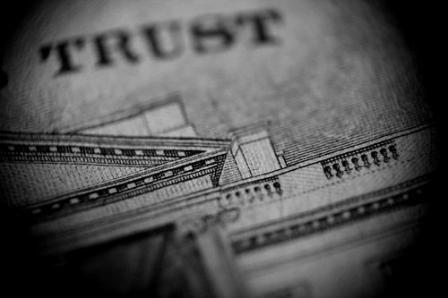Imagine a world where we can choose to live great productive, engaging and meaningful
lives without having to use money.
Imagine
markets at crossroads of free public transportation corridors where you bring
the goods that you produce, or vouchers for your services, to build up your
credits. Then imagine using those
credits to acquire the goods or services provided by others.
Imagining Another Planet? Not at all, the above descriptions are happening on Earth at
this very moment. All around us there are people voluntarily choosing
simplicity to reduce their ecological footprint and to live good lives using
less and less money. We already have
early adaptors living modern lives with no money at all.
Examples of Money-Free
Pioneers
While many
are doing it quietly–and often out of necessity–a British economics graduate
named Mark Boyle is making a public effort to become a Freeconomist and
"to see what it is actually like living without money in western
civilization":
There is also
James Taris from Australia
who circled the world in 2004 without using
money. We sent James some miles for the
privilege of hosting him in San Francisco and in return he gave us a lecture
explaining how he was doing it.
Our
teenage children listened to him and were mesmerized. They have been traveling this way since. They
have seen all continents, have learned stuff that cannot be taught in
classrooms and developed a network of trusted friends around the globe that
makes them feel at home wherever they are.
Our friends feel the same way and they bless us often with their visits
giving us a chance to reciprocate their hospitality. Traveling like this with less money
is becoming easier since free places to stay are now listed on the web .
Trading
Markets
In 2001
and 2002, I traveled with Thomas Greco to Argentina to study a social
phenomenon called Clubs del Trueque.
These were weekly markets spontaneously organized by their participants
to trade among themselves using no money at all.
To
facilitate their accounting they printed Papelitos–home made notes that helped
them trade and allowed each participant to get out roughly the same value they
brought in. I posted some pictures here:
Born out
of necessity when all banks closed, the Clubs del Trueque at their peak allowed
over 1 million families to survive providing food and services. It was a
creative way for people to help themselves since the economic crisis was so big
that governments could not respond on time. Once the economy normalized the
popularity of Clubs del Trueque decreased, trading is still being done but it
is now considered more of a social activity than a necessity. For more information visit Thomas Greco's
site .
Being
Beyond Money is Cool
A couple
generations ago it was cool to be rich and many pretended to be by consuming
more than they should. At that time most
people felt they were above shopping in a thrift store such as those that make
up the Beautiful Store chain in South
Korea.
"I have seen a big change in the last years," said Kwak
Hyunseok, a Beautiful Store manager in Iksan, South Korea, "all segments
of the population are supporting us now by donating their used goods, helping
us restore them, and by shopping in our stores, it is a new type of life style
that is helping our society as a gentle rain." Their first store started
in 2002–since then they have expanded everywhere in the country and are
considering opening in North
Korea.
Money Is
Losing Weight
In the
span of just a few generations we have gone from getting bruises for riding a
horse with a bag full of coins, to carrying bulky paper notes, to a slim
plastic card, to entering a password, to a thumb print, to just looking into an
eye recognition device…
Collateral
is Also Slimmer
We went
from delivering cattle as guarantee, to liens on buildings; now one of the fastest
growing banks loans to groups of 5 ladies that know and trust each other, the
only collateral is their word that they will cover for each other as needed. If this sounds crazy–think again: the bank and countless poor communities are thriving
because of this expanded form of collateral, default rates are around 1% and
its founder, Muhamed Yunus, got a Nobel Peace Price for creatively monetizing
social capital through the Grameen bank. This people power was a value that was there all the time but other bankers never saw it as such.
Democratizing
Credit Granting
In a few
generations we went from having banks as the main source of credit, to cards
issued by businesses, to granting credit ourselves to remote entrepreneurs
based on recommendations from peers in the field. You can experience this new power by using
Kiva. Loans can be $20 to a street
vendor in Timbuktu–but taken
together we are now lending over $1 million a week with a default rate around
1%. Compare those stats to the record of the pros at Wall Street banks!
Better
Trust
The
above examples have one thing in common, the better ways of granting credit
(aka issuing money) has evolved as we developed better ways of trusting. While
machines can help in the accounting and verification, computers fall short when
determining the trustworthiness of a human.
Techies have tried to grant trust with proprietary algorithms, but that
produced many of the problem loans we are dealing with now.
Back in
the 1970's, when I first moved to California,
I wrote: "Americans are good people; they just need to learn to trust each
other more." Having traveled the
world as an ambulant jeweler I had developed a fine tuned inner-radar that
quickly told me who to trust. This
proved invaluable at trade shows where I quickly could grant credit to buyers I
just met and offer no-risk trials of my work. Our business grew and when it was
time to hire helpers I mainly looked for their ability to trust people. Their responsibilities empower them with the ability
to grant instant credit to some people and to refuse orders from others, so it
is vital that they can tell the difference.
Interestingly,
when asked "Do you think people can be trusted?" residents in
different countries around the world answered in very different ways. 65% said yes in Denmark
and 50% in Iran, while 20%
said yes in Israel and only
10% in South Africa. The percentage that said yes in the United States
was 35%.
Recent
neuroscience research suggests that our ability to trust others is related to our brain
level of oxytocin–this opens the possibility of treating paranoids with a pill
and perhaps accelerating our evolution towards a more caring society.
Cultivating Trust
If we
need better trust then we should look for it at places where trust grows well.
Grameen
Bank works because villages in Bangladesh
are highly interactive–everybody knows everybody and the value of a person’s
reputation in their village is highly cherished so they do not dare to let
their friends down. Where do we have
these conditions around us?
If we
are lucky we may experience good levels of trust in our families, then at school,
at collage, at the military, at our work place, with our friends, in our
church, in our neighborhood, and in our community.
Bernard
Lietaer has the best definition of community I've encountered. He says: "A
community is a group of people doing favors for each other".
Bernard
is the visionary Belgian banker that designed the Euro, the first time in
history that one monetary system replaced others without bloodshed. He is not
stopping there, has joined forces with Margrit Kennedy to expand the WIR Bank
model from Switzerland–where it has thrived for 6 decades–to the rest of Europe.
Merchants
issuing money: The WIR Bank
In the
WIR Bank, merchant members accept WIR credits from each other in exchange for
goods and services. Next time in Switzerland, if you pay attention
to the storefronts, you may find the WIR sticker besides the usual credit
cards. Merchants that accept it are
earning WIR credits as they earn legal tender, but they cannot exchange them
for money, only to buy goods or services from another WIR member. This limitation makes WIR less desirable than
money, but it has an advantage that makes up for it: WIR members can take NO
INTEREST LOANS in WIR credits from a WIR bank by putting their property as
collateral.
Established
during the Depression, WIR usage has historically spiked when there was less
money circulating – like we are experiencing now. While many stores accepting only money
closed, merchants accepting also WIR continued doing business in spite of the
scarce legal tender–by now thousands of businesses in Switzerland
accept WIR.
Image credit: "trust macro money" by doogin, used thorugh a Creative Commons license.















